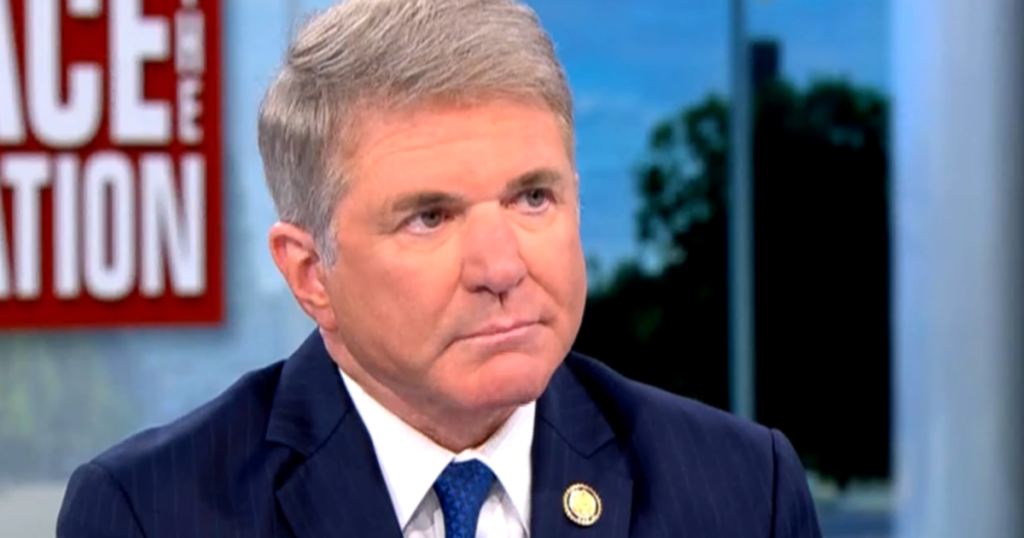Rep. Michael McCaul on USAID and Foreign Aid: A Call for Clarity and Efficiency
The Core Mission of USAID: A Need for Refocus
In a recent interview on Face the Nation, Rep. Michael McCaul (R-TX) emphasized the importance of returning USAID to its core mission, which he believes has been overshadowed by what he described as "woke policies" under the Biden administration. McCaul, a longtime supporter of USAID, pointed to its origins in the 1960s under President Kennedy as a tool to counter Soviet influence during the Cold War. He argued that the agency has strayed from its national security-focused mission, citing examples such as promoting LGBTQIA programs in Latin America and atheism in Nepal. McCaul contended that these initiatives have distracted USAID from its primary role of providing humanitarian assistance and countering adversaries like Russia and China. He also highlighted the success of programs like PEPFAR (President’s Emergency Plan for AIDS Relief), initiated by President George W. Bush, as an example of USAID’s effective mission-driven work.
Bureaucratic Bottlenecks and Humanitarian Aid Delays
The interview also shed light on the recent chaos surrounding USAID’s food aid program. Margaret Brennan highlighted the alarming situation where 30 million metric tons of food aid, purchased with American taxpayer dollars, remained stranded at a port in Houston due to a lack of U.S. workers to unload it. McCaul acknowledged the confusion and delays but attributed them to broader mismanagement under the Biden administration. He noted that while Secretary of State Rubio has issued waivers to expedite humanitarian assistance, the implementation has been slow, leaving food and medicine undelivered to desperate populations. McCaul urged the administration to act more swiftly, emphasizing the importance of these programs in maintaining global stability and countering adversaries.
National Security Implications of Aid Delivery
Rep. McCaul stressed that USAID’s role extends beyond humanitarian aid to serving as a vital tool for national security. He referenced the Marshall Plan and the "Peace Through Food" program, which aimed to stabilize fragile nations and counter communist influence during the Cold War. McCaul warned that the current delays and mismanagement of aid are undermining U.S. credibility and creating opportunities for adversaries like Russia and China to fill the void. He also highlighted the importance of programs like PEPFAR in saving millions of lives and fostering goodwill toward the United States, arguing that such initiatives are critical to global stability and security.
Restructuring USAID: A Debate Over Efficiency
The interview touched on the possibility of restructuring USAID, with McCaul expressing support for placing the agency under the direct supervision of the State Department. He noted that this idea has been discussed by previous administrations, including those of Bill Clinton and Joe Biden, and argued that such a move could improve oversight and efficiency. However, McCaul also called for a comprehensive review of USAID’s operations to ensure that it returns to its core mission of providing humanitarian assistance and advancing U.S. interests abroad. He acknowledged the complexity of the issue but emphasized the need for clarity and accountability in the agency’s operations.
Refugee Policies and Prioritization of Afrikaner Resettlement
Another contentious issue raised during the interview was the recent decision by the Trump administration to halt all foreign assistance to South Africa and prioritize the resettlement of Afrikaner refugees in the United States. McCaul expressed concerns about the unintended consequences of this policy, particularly its impact on Afghan allies who worked alongside U.S. forces and are now facing increased risks without American support. He emphasized the moral obligation to protect these individuals, who have been vetted and played a crucial role in U.S. operations in Afghanistan. McCaul called for a carve-out in the refugee ban to allow these Afghan allies to resettle in the United States, warning that failing to do so would undermine trust in future conflicts.
Divisions Within the Republican Party on Foreign Aid
The interview also revealed divisions within the Republican Party over the role of foreign aid. While McCaul defended programs like PEPFAR as vital to U.S. interests and global goodwill, other Republicans, such as Rep. Brian Mast, have criticized the allocation of resources to countries that may align with adversaries like China. McCaul struck a more measured tone, emphasizing the importance of maintaining U.S. influence in fragile regions and countering Russian and Chinese efforts to expand their reach. He argued that programs like PEPFAR not only save lives but also serve as a powerful tool for diplomacy and national security.
In summary, Rep. McCaul’s interview highlighted the need for clarity, efficiency, and a return to core principles in U.S. foreign aid policy. He called for stronger oversight of USAID, faster implementation of humanitarian programs, and a bipartisan approach to addressing the challenges posed by global adversaries. While acknowledging the complexities of restructuring and reallocating resources, McCaul underscored the importance of maintaining U.S. leadership on the world stage through effective and mission-driven foreign aid.












